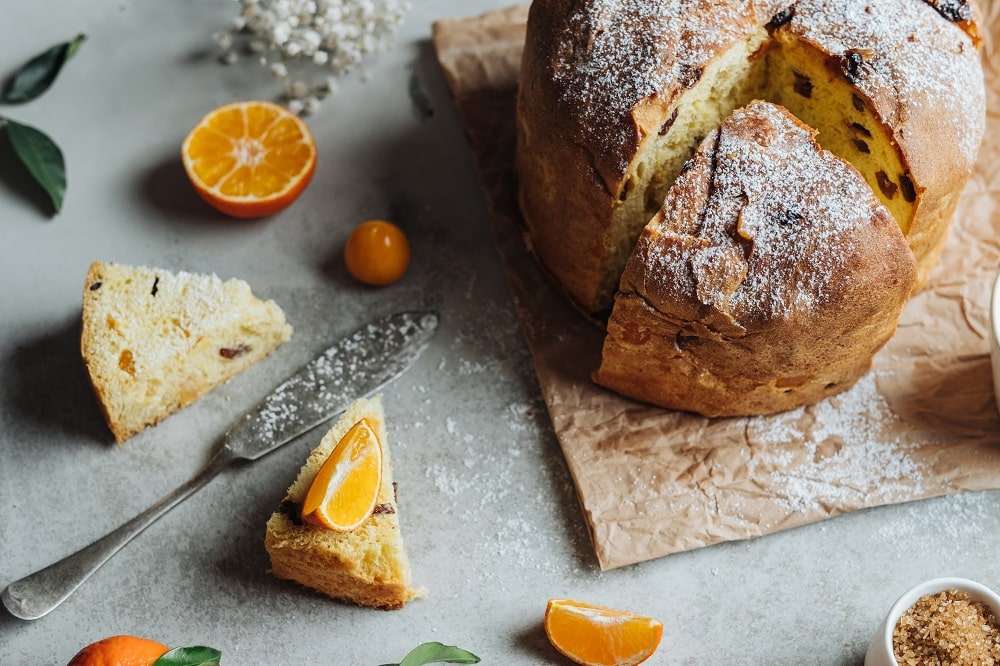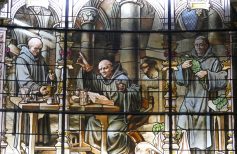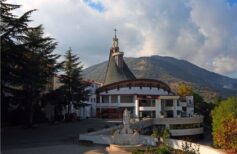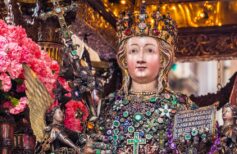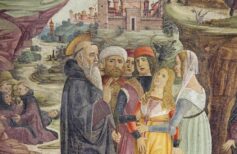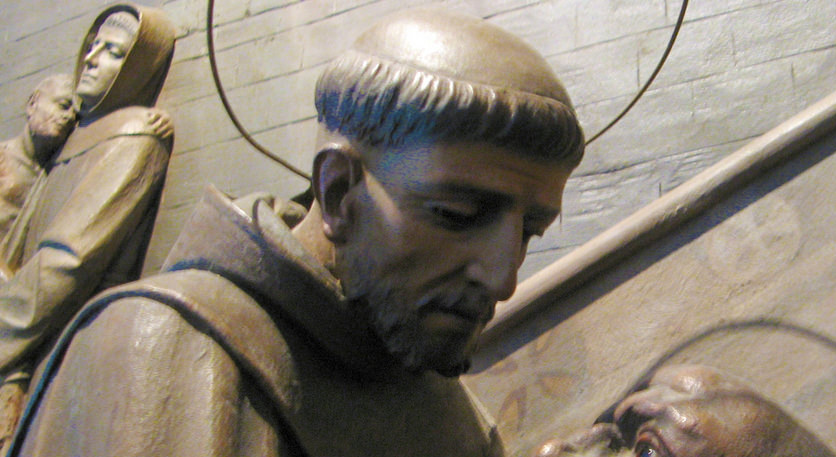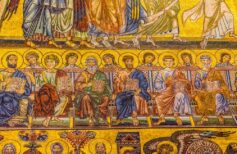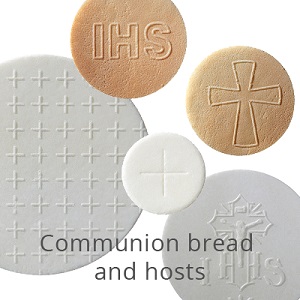Saint Blaise and the Milanese panettone. Let’s find out what the Armenian saint who protects against diseases of the throat and the famous Milanese dessert have in common
We have already talked about St. Blaise of Sebaste, physician and patron saint of otolaryngologists and protector of those suffering from throat diseases, in an article dedicated to him and the Auxiliary Saints, those to be invoked when one is sick. Instead, in this article we want to explain why on February 3, the day of the liturgical memorial dedicated to this saint, there is a tradition of eating panettone.

San Biagio: the saint to be invoked for a sore throat
The devotion to San Biagio di Sebaste, doctor and patron of otolaryngologists, who treats throat diseases…
Saint Blaise is much loved in Milan. A spire of the Duomo is dedicated to him, and fragments of his body are kept in numerous churches in the city. In the province of Mantua, San Biagio cake, made with almonds and dark chocolate, is baked.
St. Blaise lived in Armenia between the 3rd and 4th centuries, was bishop of Sebaste and a physician, and died beheaded after being tortured for a long time with the iron combs used for carding wool. His cult quickly spread throughout the Mediterranean basin, and his relics, to which extraordinary healing powers were attributed over time, were preserved in many churches. Nothing to do, then, with the countryside of Brianza, where the tradition arose of eating a piece of blessed Christmas cake left over from the Holidays on the morning of February 3, as a prevention from evil in general and from sore throats in particular.

Therefore, to understand the reasons for the February 3 panettone tradition we need not look to the history of the saint. Let us look at the suggestive legend that gave rise to the custom.
The tradition of the panettone on St. Blaise
As we have already mentioned, Saint Blaise was a physician. Among the many more or less miraculous healings attributed to him was the rescue of a boy who was choking because of a fishbone stuck in his throat. His desperate mother took him to the saint, who made him swallow a large loaf of bread. The bread went down his throat and slipped the fishbone out, saving the young man’s life. This is probably how the attribution to the saint of patronage over diseases of the throat originated.

The story that prompted the custom of eating panettone on his feast day is much less dramatic. The protagonists are a peasant woman from the plains of Lombardy and a lazy, gluttonous, and even a bit of a liar friar! The housewife had baked a sumptuous panettone for her family to enjoy at Christmas. Wanting to have it blessed, she handed it over to a friar named Desiderio, recommending that he bless it and promising that she would return to collect it. The friar, however, distracted by other matters, forgot all about it. The Holidays passed, and the panettone remained abandoned in the monastery cupboard. Only after Christmas did Desiderio remember the panettone. Fearing that the woman might return to claim it, he hastened to bless it, but then, as the days passed and she did not show up, he began to nibble on it, eating it all one piece at a time. In the end, only the empty wrapper was left. The housewife returned on February 3, claiming her panettone. The friar sstalled, but finally resigned himself to returning the empty wrapper to her, making feeble excuses. But lo and behold, upon reaching the cupboard, the friar and the housewife found an even larger panettone than the one she had baked, making a fine display in place of the crumbs left by Desiderio! Who could only silently thank St. Blaise for the miracle, vowing to be less procrastinating and less gluttonous in the future.

This amusing folk tale originated the tradition of having breakfast on the morning of February 3 with the last leftover panettone from the Christmas holidays, to avoid sore throats and colds for all the days to come.

